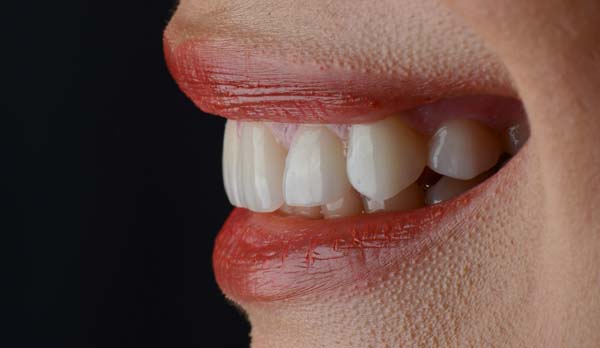How Can You Relieve TMJ Pain?

TMJ refers to the temporomandibular joint, which is located in the jaw region of the face. When the joint malfunctions, individuals suffer from TMJ disorder. TMJ disorder can lead to pain and difficulty with eating, speaking and even smiling.
Individuals suffering from TMJ disorder are often curious about treatment options from a general dentist.
General dentists treat TMJ patients
Many are surprised to learn that general dentists can diagnose and treat TMJ disorder. Nonetheless, general dentists are actually the first point of contact for individuals suffering from TMJ pain and malfunction. They are trained to care for problems in the facial region and specifically the jaw.
Options for relieving the pain associated with a TMJ diagnosis
The list below includes three common options that general dentists often prescribe to their patients who have been diagnosed with a case of TMJ.
#1 – Practicing conservative measures
Many TMJ patients will experience pain relief by following a few conservative measures. This is often the first course of treatment a dentist will offer patients who have been diagnosed with a mild case of TMJ. Examples of conservative measures include eating a soft food diet, chewing slowly and very carefully, not participating in the act of teeth grinding or clenching and avoid chewing gum. In order for patients to experience the pain relief they seek, it is necessary to perform these measures for a certain amount of time, such as a month or two.
#2 – Taking prescribed medications
A general dentist can prescribe a TMJ patient anti-inflammatory pain medications in order to reduce and even eliminate any pain they are experiencing. Anti-inflammatory medications work by reducing any swelling present, which in turn helps to lower one’s pain levels. Muscle relaxers are another type of medication that helps relieve TMJ-related pain and work by helping the jaw area become much more relaxed, which also helps to reduce one’s pain.
#3 – Apply ice packs, hot packs
Applying an ice pack often works to help reduce the pain that TMJ patients suffer from. Both ice and hot packs help to reduce muscle tension in and around the jaw area. Additionally, this practice can reduce any tooth pain one may be experiencing due to their TMJ diagnosis. Ice packs specifically help to reduce swelling that causes pain and hot packs help to relax one’s muscles, as well as increase one’s blood flow. Patients may need to use one or both, depending on their particular case of TMJ.
Experiencing TMJ-related pain?
TMJ disorder can result in pain and malfunction, which is why care from a general dentist is necessary. There are a number of ways to treat this disorder that go far and beyond the ones listed above. When looking for more information on the diagnosis, management and treatment of TMJ, it is best to consult directly with a general dentist for personalized care. Reach out today to find out more!
Request an appointment here: https://www.perfectchoicedental.com or call Perfect Choice Dental P.C. - Brian Overmyer, D.D.S. at (815) 477-3700 for an appointment in our Crystal Lake office.
Check out what others are saying about our dental services on Yelp: TMJ in Crystal Lake, IL.
Recent Posts
Dental staining can go away with a smile makeover. Your teeth are among the first things people see. That is why correcting any blemish is important. The correct treatments can rejuvenate your teeth. If you want to know how a smile makeover can brighten your discolored teeth, here are the details.Regular in-office teeth-whitening treatments cannot…
If you are looking to get an implant restoration from an implant dentist, one of the questions you might have is how the option differs from your natural teeth. Dental implants have been touted as the most reliable and natural-looking option available for replacing missing teeth. The restoration comes with an artificial tooth root that…
Preventive dentistry is a branch of dentistry that focuses on protecting your mouth against common dental issues like tooth decay and gum disease. It include simple things that you can do independently, like practicing oral hygiene, and procedures performed by dentists, like dental cleanings.Taking good care of your mouth makes you less likely to develop…
A general dentist might recommend a dental implant if you have lost a tooth. This is the only tooth replacement option that stops the bone tissue loss that takes place when teeth fall out. This loss is the result of the structures that once held the lost tooth in place no longer getting the stimulation…


